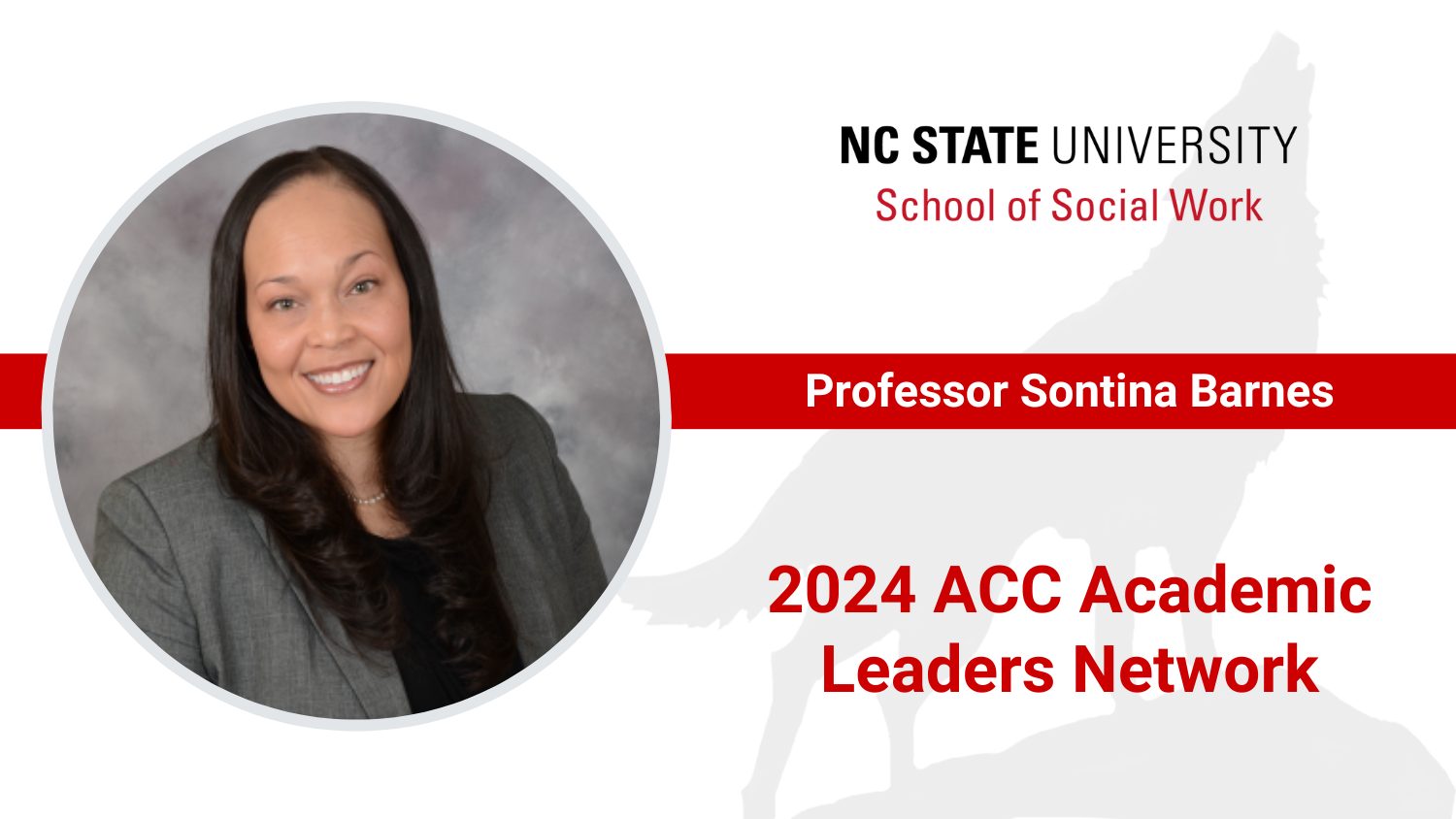School of Social Work Awarded Four-Year $1,919,598 Grant From HRSA

The NC State School of Social Work was recently awarded a four-year $1,919,598 grant from the Health Resources and Services Administration (HRSA). This initiative, led by Dr. Jodi Hall and in collaboration with Dr. Kim Stansbury, Dr. Sarah Ascienzo, and Dr. Alan Ellis, aims to increase the number of clinically trained social workers committed to and able to address the growing behavioral health needs of at-risk children, adolescents, and transitional aged youth.
Since 2014, HRSA has awarded the School of Social Work $6,870,974 in grant funding. Dr. Hall contributes the success of generating grant dollars to a belief in the collaborative work and dedication of the Social Work faculty. “We are committed to providing education and training to strengthen the work of communities. We look to the community for strong training partnerships so that graduates leave fully prepared to succeed in the behavioral health field,” she stated. Additionally, Dr. Hall noted that the ability of the School of Social Work to continue to generate federal funding is also due to the success of our behavioral health workforce development efforts over the last seven years. The HRSA training programs at the School of Social Work has attracted numerous students to the MSW program. In addition to extensive behavioral health training, MSW students in the program, known as HRSA Scholars, also receive a $10,000 stipend over the academic year. The program is for social work graduate students in their final year of study.
Unfortunately, North Carolina is no exception to the U.S. workforce shortage in the behavioral health sector. Out of 100 counties in NC, 94 contain at least one Health Professional Shortage Area (HPSA) for mental health (NCDHHS, 2020). Additionally, disparities in access and utilization of care exist even in those areas with higher levels of providers (Wake County, 2020). These are key issues the School of Social Work hopes to resolve through education and training. According to Dr. Hall, “By the end of the 2021-22 academic year, we will have trained 264 graduates to address mental health and substance use disorders. By the time this grant ends in four years, that number will have grown to 351 prepared graduates and at least 60 additional community training partners.”
The success of this training is evidenced by our graduates. 67 percent of our Behavioral Health Workforce and Education Training (BHWET) graduates report being employed in medically underserved areas (MUCs). Nearly 12% of our BHWET graduates work in rural MUCs, a significant achievement for an urban university. These rates should continue to grow, as our School continues to add to a training partnership network of over 200 agencies and organizations.
As stated by Maura Bourne, a 2021 NC State MSW graduate and HRSA Scholar, “Through my time as a HRSA Scholar I received unique, focused trainings relevant to my goal of working in adolescent behavioral health. When it came time to apply for work, I already had a wealth of knowledge on treatment modalities and evidence-informed practices. I just graduated in 2021 and am very prepared for my current role. I am employed at Hope Services LLC, an accredited behavioral health organization. For the past five months, I have worked in the Intensive In-Home unit in a clinical role. My post-graduation success is in part due to my experience as a HRSA Scholar at NC State.” Pam Wheeler is a member of the School of Social Work professional faculty and has been the coordinator of the BHWET program since the School received its first grant in 2014. Ms. Wheeler is a licensed clinical social worker with extensive experience in Wake County. Wheeler stated, “I visit the students at the agency training site where I see their clinical skills getting developed and fine-tuned. Our BHWET graduates can be found in hospitals, prisons, hospice centers, and community-based agencies. They are in clinical practice with medically underserved populations from prenatal to the elderly. I have been involved with some of them long enough to see them go from student intern all the way to social worker supervisor who now accepts new HRSA Scholars for field placement. The circle is complete. It is rewarding to know that HRSA values our work and has provided us another four years to add to our success.”
In addition to the newly awarded BHWET grant, the School of Social Work has an Opioid Workforce Expansion (OWEP) grant. This grant, led by Dr. Jocelyn Taliaferro, seeks to increase the number of clinically trained social workers able to respond to communities where substance use disorders are prevalent and under-treated. Alongside these efforts, Dr. Qiana Cryer-Coupet is the Principal Investigator for an OWEP grant that prepares paraprofessionals to address addiction-related issues.
It is the collective efforts of many that allow NC State to have a great impact on behavioral health for communities across the state. Dr. Hall stated, “The success of HRSA funded programs on our campus is the intentional coordination and engagement of community agencies, our Field Education faculty, the Office of Financial Aid, Sponsored Programs/Research and Engagement, and other campus partners including Center for Families and Communities (CFACE), the Counseling Center, the Psychology Department, and others. Everyone does their part so that we can train and prepare our graduates to fill the behavioral health workforce shortage in our state and nation. The need has only grown since the pandemic began and we are committed to continuing to meet the challenges that can be addressed through education, training, and workforce preparedness.”
As stated by Brianna Davis, an incoming HRSA Scholar, “I am currently interning at Cherry Hospital, which is a psychiatric hospital that provides excellent psychiatric services to individuals with severe and persistent mental illnesses. I am beyond thankful for the opportunity to be selected as a HRSA scholar. I look forward to the mental health training that will equip me with skills that I can apply to my social work practice. Additionally, I am in awe of receiving the financial support of a $10,000 stipend to contribute to my higher education and other expenses.”
The School of Social Work is still recruiting for a few slots left for social work students in their final year committed to mental health (BHWET) and/or substance use/opioid use related careers (OWEP). For more information, please visit our HRSA Opportunities page.


